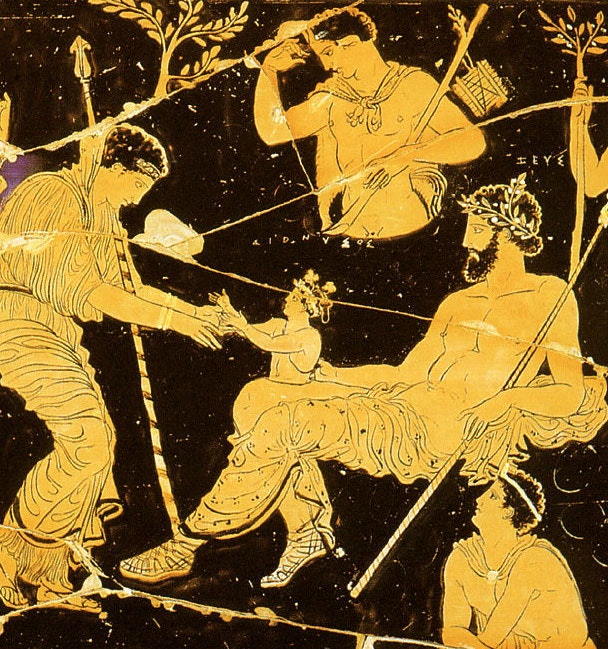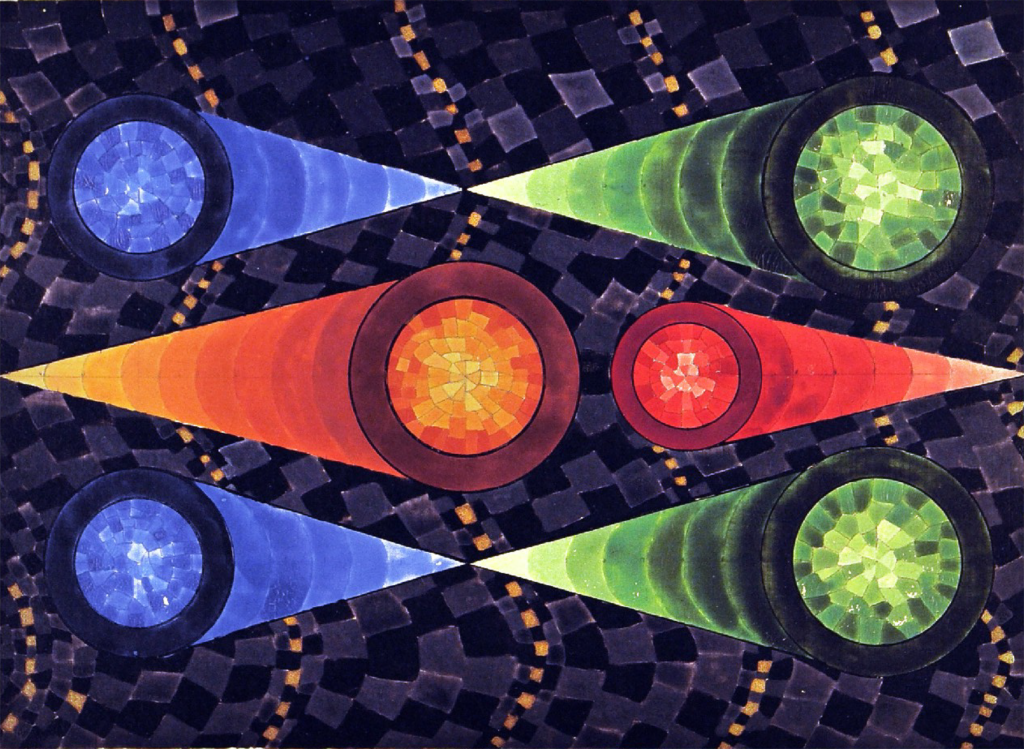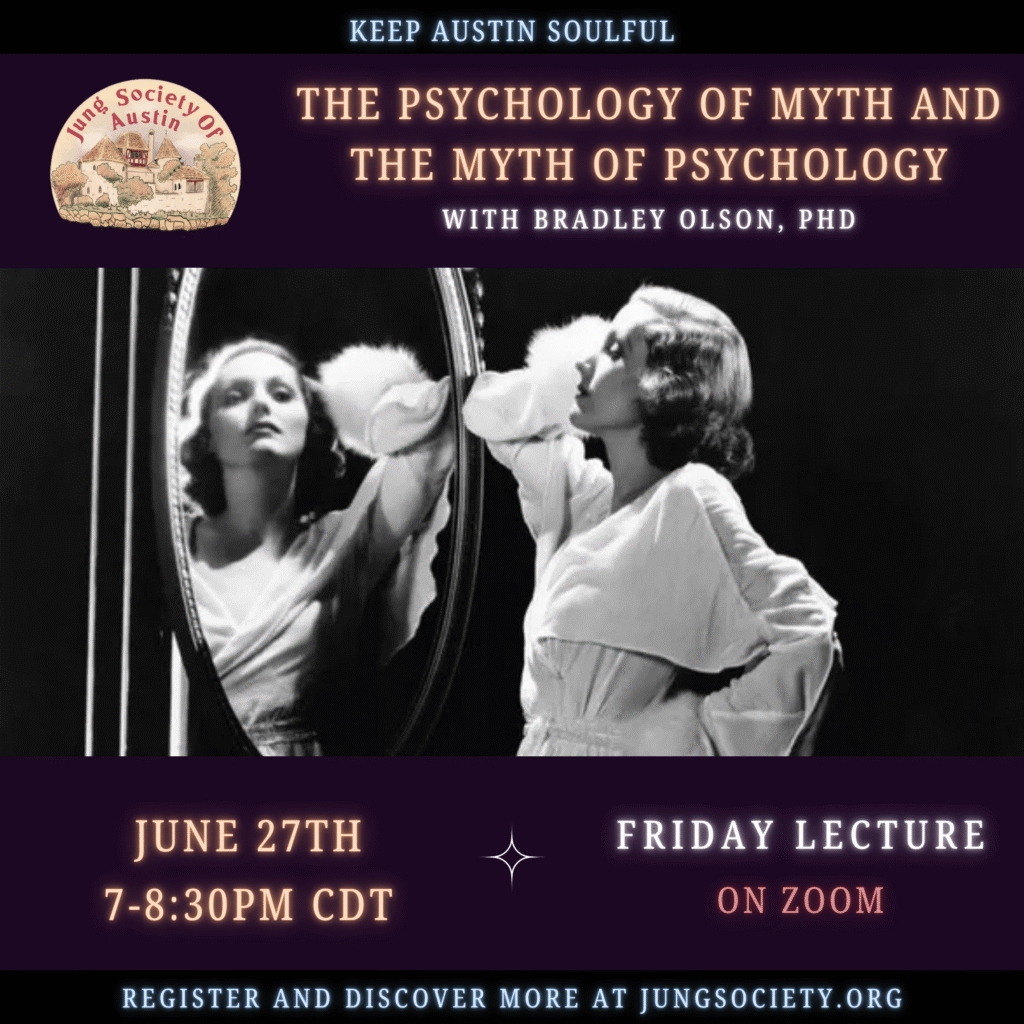
This event is potentially appropriate for Continuing Education units (CEs)
Friday lecture ONLY virtually via Zoom- All ticketholders will receive link
Friday lecture (7pm – 8:30pm)
Title:
The Psychology of Myth and the Myth of Psychology
Abstract:
Myth, often unconsciously, underlies and shapes every aspect of life including the practice of psychotherapy. In this conversation we will discuss the mythic thinking of psychology and the psychological power of myth which, when taken together, offers the possibility of a deeper understanding and connection to the challenges of living. We will explore the mythic DNA of depth psychologies and explore the role of myth in the therapeutic practices of Sigmund Freud, C..G. Jung, as well as the mythopsychological ideas of Joseph Campbell, the relationship between Mythos and Logos, and how myths work psychologically to empower and heal, not just individuals, but culture and societies.
Bio:
Bradley Olson, PhD, a former police officer, is a Depth Psychologist with over thirty years of experience in private practice, as well as a mythologist, writer, and speaker, whose work concentrates on the intersections of myth, psychology, literature, aesthetics, and cultural studies. He is the author of The Mythopoetic Impulse: Selected Essays 2017-2022 and Pathways to Bliss: A Skeleton Key Study Guide, as well as a regular contributor to JCFs MythBlast Series, weekly essays that explore the continued relevance of myth to contemporary life. Dr. Olson is also the host of the popular podcast series, Pathways With Joseph Campbell, the flagship podcast of the Joseph Campbell Foundation, which he also serves as the Director of Publications. You can learn more about Dr. Olson by visiting his website, bradleyolsonphd.com, and discover What’s Mything in Your Life.
Past Events
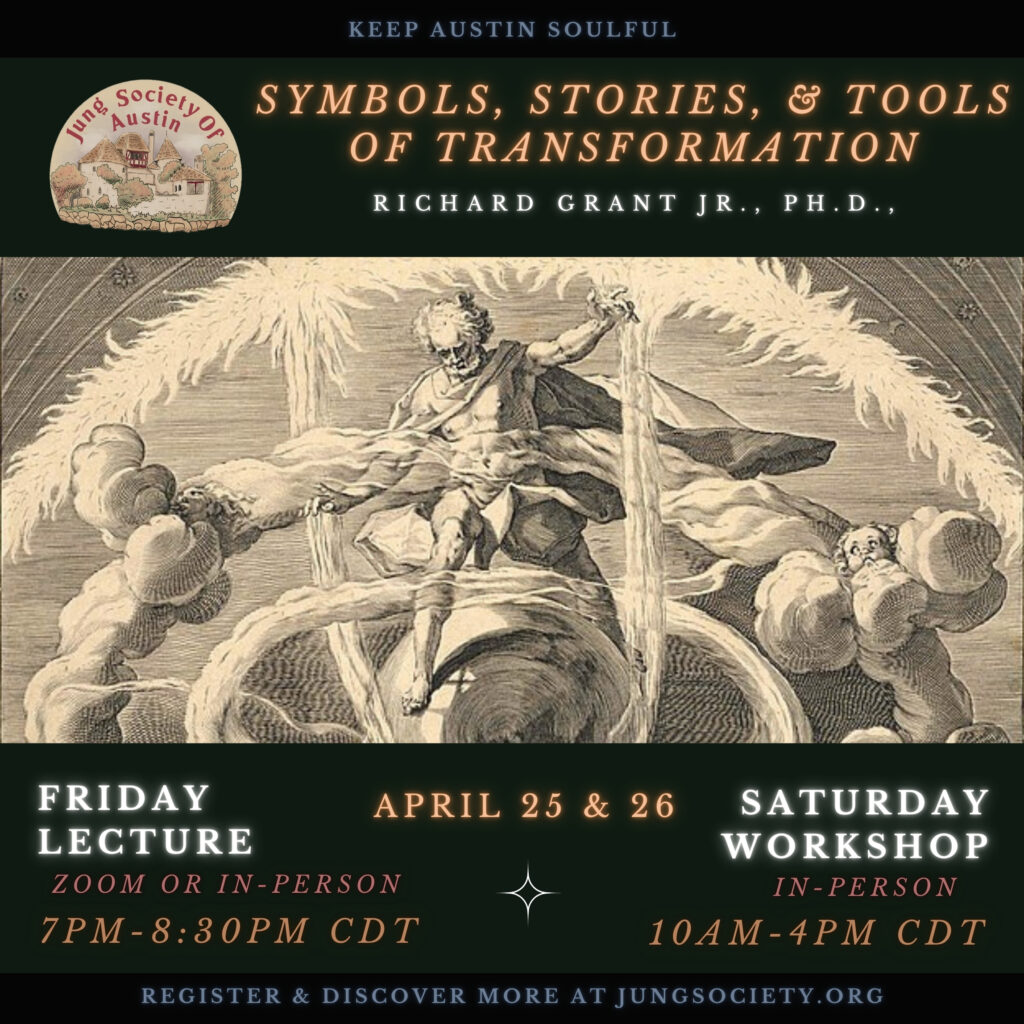
This event is potentially appropriate for Continuing Education units (CEs)
Friday lecture ONLY option to attend virtually via Zoom- All ticketholders will receive link
Friday lecture (7pm – 8:30pm)
This presentation will explore personal transformation by integrating theories from Carl Jung, Erik Erickson and a number of modern Jungian authors, focusing on four lifelong archetypal yearnings that form a framework for spiritual development, psychological growth, and recovery. This fourfold model can be seen in many spiritual traditions, in symbol systems representing human totality, such as astrology and alchemy, and in modern methods of psychotherapy and recovery, such as the Twelve Steps of AA.
At each stage, opposites held in tension provide the engine for conscious, transformational development. One’s own experiences of transformation can be amplified by stories and myths from various spiritual traditions. This lecture will use Jewish and Christian scriptures to provide context and guidance for one’s own spiritual journey. Psychological tools from psychotherapy and frameworks of recovery will help apply the transformational model to the present day. Please bring paper or a notebook and writing utensil.
Saturday workshop (10am – 3pm)
This workshop will begin with a summary of ideas from Friday’s lecture, then will go into detail about source materials that participants might wish to access. The fourfold transformational model will be examined in spiritual and philosophical traditions, always with an eye to application, and participants will have opportunity to share and examine transformational experiences with one another. Psychological type and temperament will be examined as a framework for individual transformation, as well as the evolution of the ego-Self axis across a lifetime.
Four models of human leaning will be applied to the stages of transformation, including recovery concepts, especially the Twelve Steps of Alcoholics Anonymous. A number of therapeutic tools will be offered that can be used personally and professionally. Please be prepared for discussion in pairs or a small group (option to process independently instead).
Attendees of workshop please bring: sack lunch for a brief break, notebook/paper, writing utensil, personal timeline of memorable experiences (not required)
Richard D. Grant, Jr., Ph.D. is a psychologist who has had a private practice for over 44 years in Austin, Texas, and has taught at the university level. He is the author of the book, Symbols of Recovery: The Twelve Steps at Work in the Unconscious, published by Type and Temperament Press. He has made previous presentations for The Jung Society of Austin, most recently & Field of Dreams: The Washington, D.C., Mall and Symbols of the American Dream.
Image details: Metamorphoses 01: The creation of the four elements PK-P-109.322Author/creator: Goltzius, Hendrik (1558-1617)
Persistent URL: http://hdl.handle.net/1887.1/item:1630921
Published (digital): Universitaire Bibliotheken Leiden,

This event is potentially appropriate for Continuing Education units (CEs)
Option to attend lecture ONLY virtually via Zoom- All ticketholders will recieve link
This lecture and discussion explores puella as an archetypal, symbolic and personality figure reaching into the classical foundations of Jungian analytical psychology. We focus on the modern conflicts reverberating personally and culturally to remove the obstacles for accessing our more complete selves. Postmodern fluidity presents other realities, rethinking and reenacting the truths to oneself. Puella is youthful, charming, seductive, and unfolds the creative, unusual wisdom of the feminine.
Susan E. Schwartz, Ph.D., trained in Zurich, Switzerland as a Jungian analyst. She appears on many podcasts and presents at numerous Jungian analytical conferences and teaching programs in the USA and worldwide. Susan has numerous articles in journals and book chapters on Jungian analytical psychology. Her books are: The Absent Father Effect on Daughters, Father Desire, Father Wounds (2020) translated into several languages; Imposter Syndrome and the ‘As-If’ Personality: The Fragility of Self (2023); A Jungian Exploration of the Puella Archetype: Girl Unfolding (2024) and An Analytical Exploration of Love and Narcissism; The Tragedy of Isolation and Intimacy (2025), Absent Fathers, Yearning Sons; Analytical Psychology Perspectives (2026) all published by Routledge. Her website is www.susanschwartzphd.com .
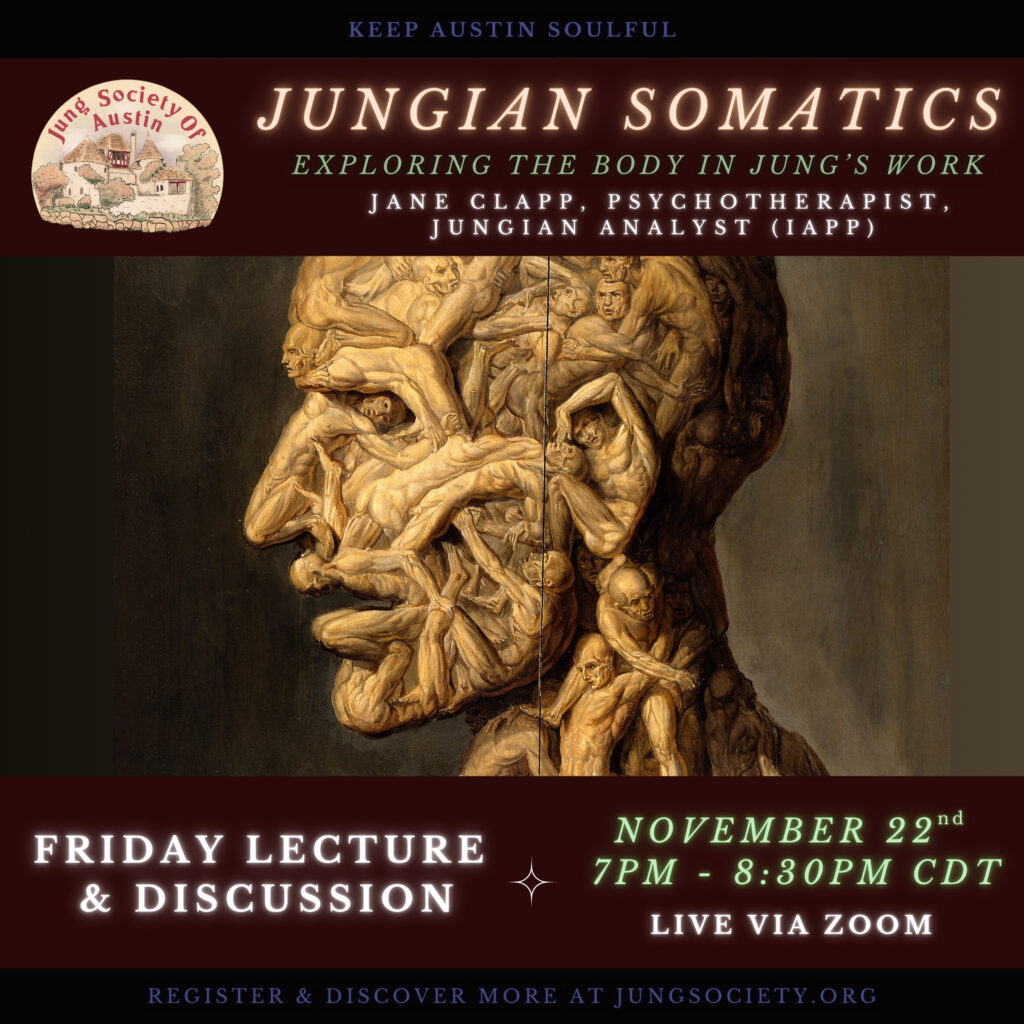
Jane’s area of specialization is early childhood trauma including preverbal complexes. As such, a somatic approach to working with complexes is a cornerstone of working with early childhood traumatic complexes that can remain ‘stuck’ in the psychoid unconscious. As Jung asserted- what we can’t symbolize we somatize. Join us as we explore the relationship between psyche and soma throughout this lecture!
In her teaching and clinical work, Jane Clapp collaborates with the body as a potent doorway into the labyrinthian nature of psyche. In this seminar, she will explore the concept of the body as a container where the alchemical process of individuation takes place. While Jung’s work is inherently embodied due to his understanding of complexes carrying feeling tone in the subtle body, and physiological charge in the autonomic nervous system, the soma is often left out of the consulting room or in theoretical discussions.
Movement for Trauma is a professional training program created by Jane, which has been attended by psychotherapists and somatic practitioners from around the world. She is a member of The Breathe Network, which connects sexual violence survivors with trauma-informed healing arts practitioners. Jane has previously presented with the Jung Society of Utah, the Calgary Jung Society, and the London Arts-Based Research Centre. Additionally, she has presented on vicarious trauma prevention and compassion fatigue for organizations including the Canadian Association of Fire Chiefs, Fire Service Women of Ontario, and at the Trauma Talks conference for Women’s College Hospital.
Jane believes in the power of understanding the body and psyche together to recover who we are truly meant to be in our lives. Discover more about Jane at her personal website, explore her work in Jungian Somaticsâ„¢ here, or read her writing and view her talks on SubStack.
Edited Promotional Image Details:
L0013119 Testa anatomica; man’s head made up of writhing male figures.
Credit: Wellcome Library, London. Wellcome Images images@wellcome.ac.uk http://wellcomeimages.org Testa anatomica; profile view of male human head composed of writhing, apparently tormented naked men. Oil 1854 By: Filippo BalbiPublished: –
Copyrighted work available under Creative Commons Attribution only licence CC BY 4.0 http://creativecommons.org/licenses/by/4.0/
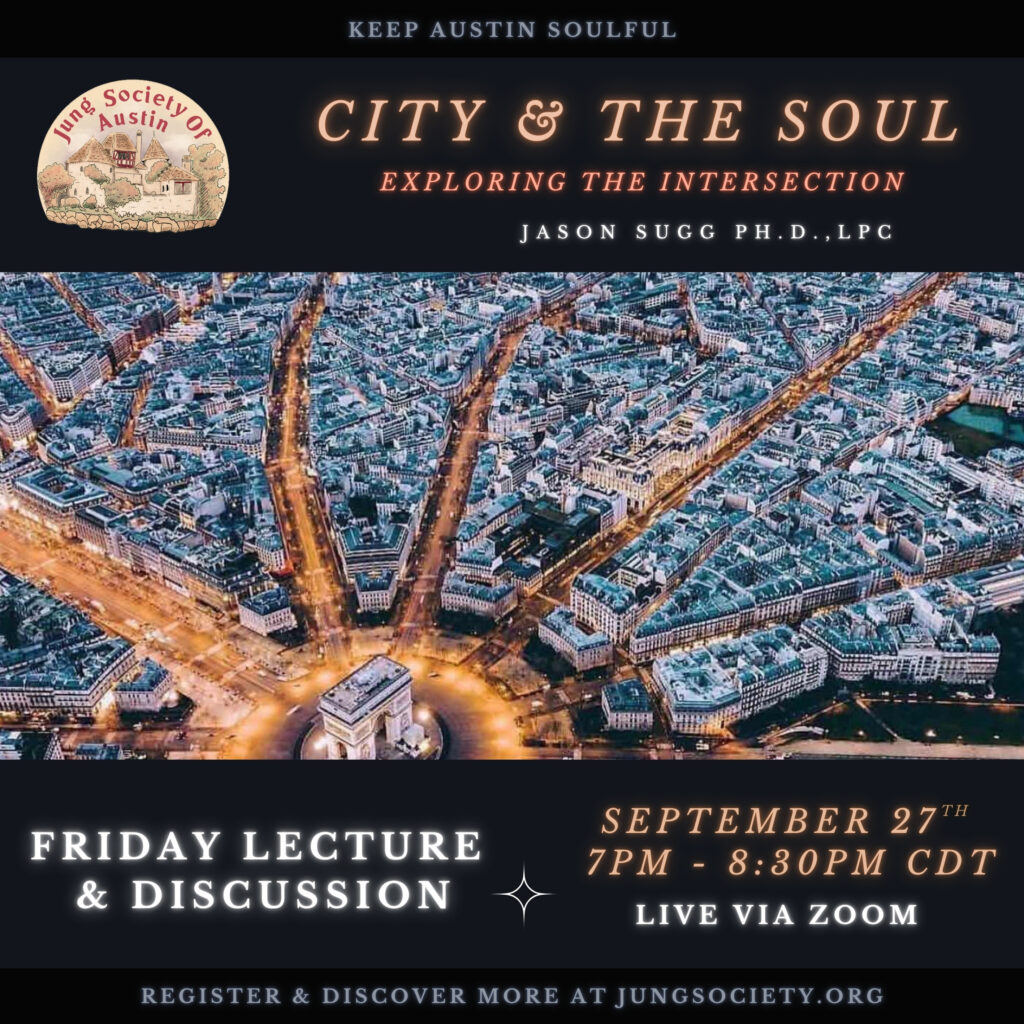
In Jungian circles we tend to talk a lot about soul, usually as an interior, self-reflective experience. But our current times demand that we let these ideas out of our private bubbles and start asking how they might help us love the world we live in more deeply.
In this interactive lecture we’ll look at the idea of soul and start to ask how soul shows up (or doesn’t) in our cities, and how we might cultivate a deeper and more soulful relationship with the urban places in which most of us live.
About the speaker: Jason Sugg is an LPC in private practice, with a strong commitment to fostering deeper embodied living through conversation and practice. In his spare time you can usually find him outdoors somewhere, preferably in the wild. He lives in Austin, TX with his two daughters, and holds B.S. & M.Eng. degrees in Computer Science from MIT, and M.A. and Ph.D. degrees from Pacifica Graduate Institute.
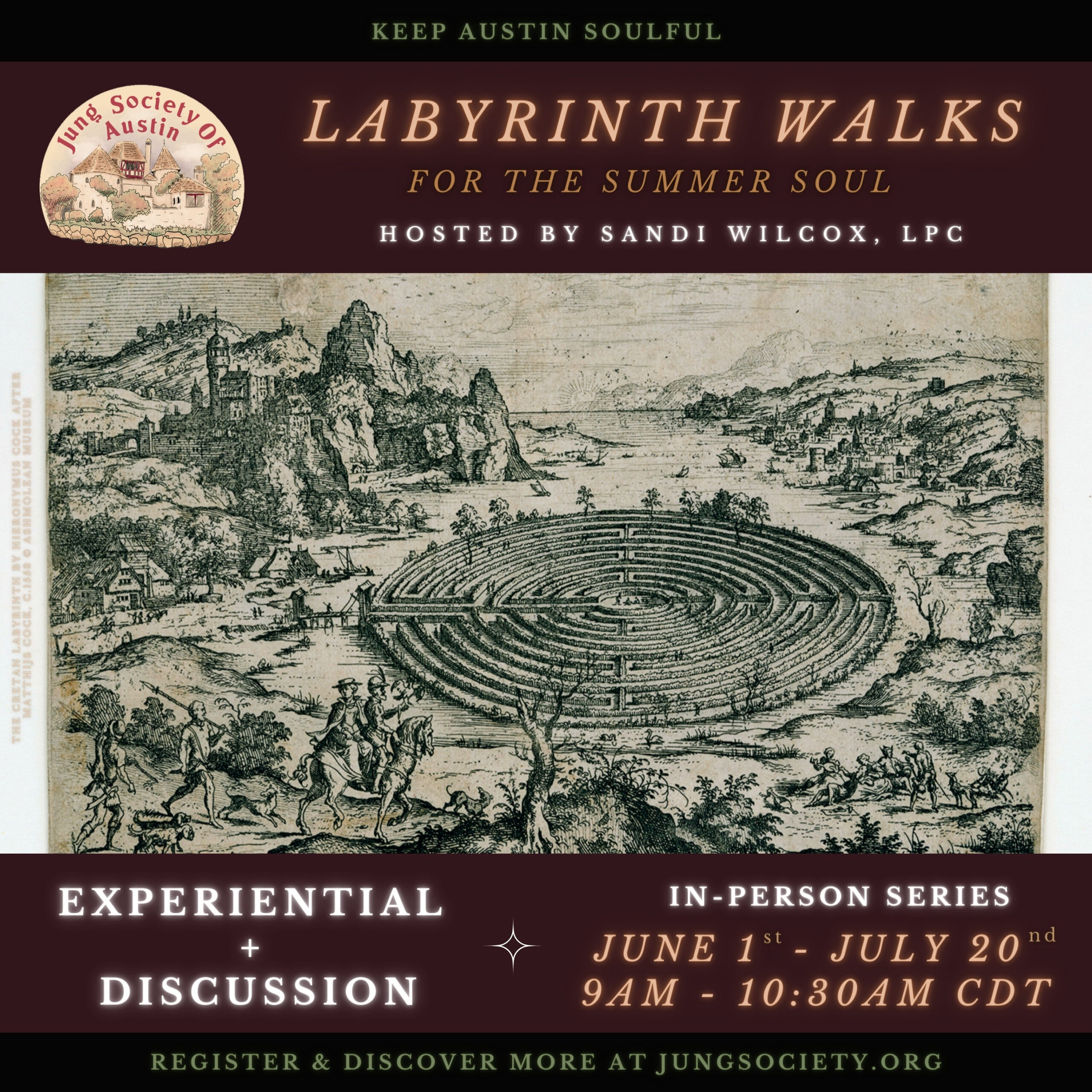
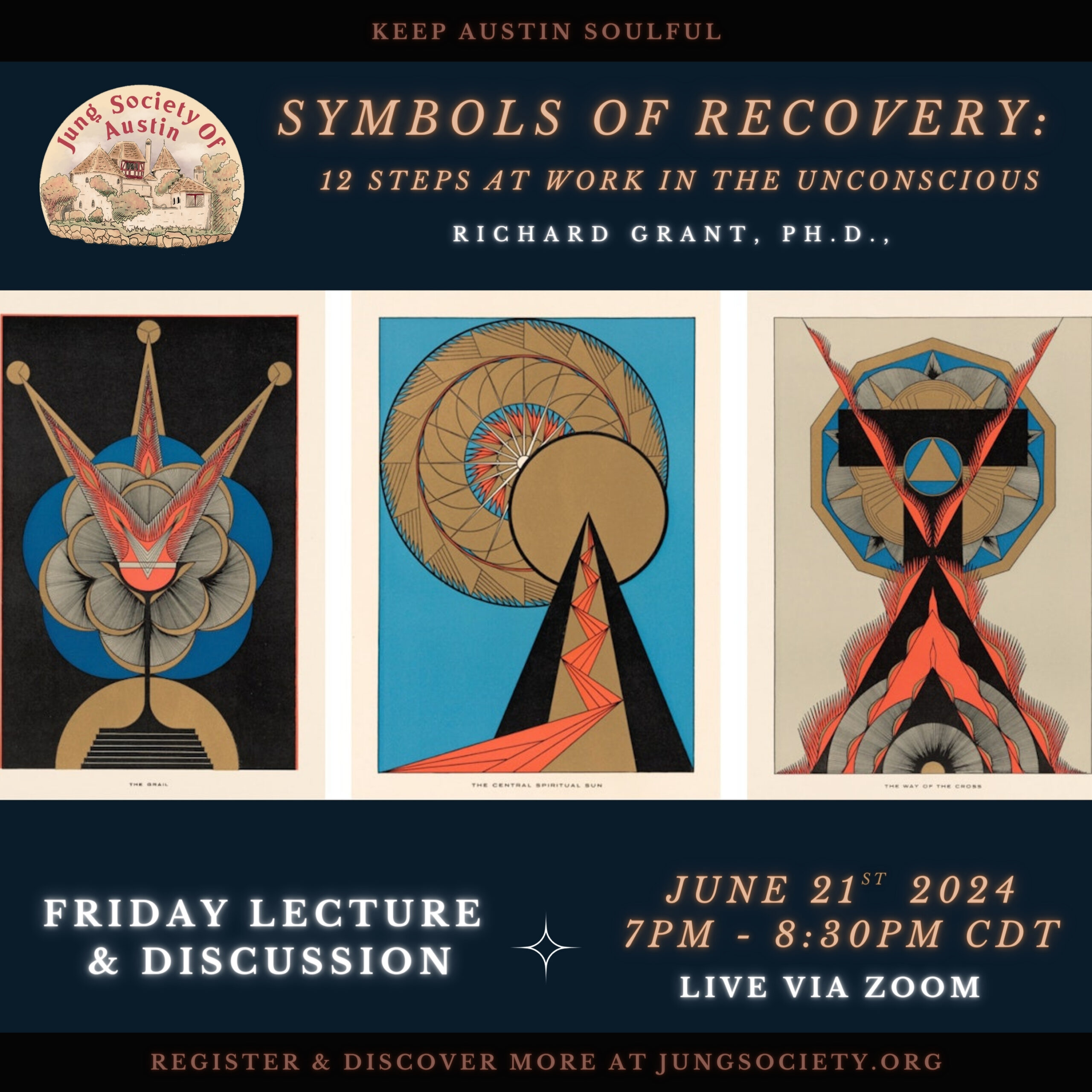

This event will be hosted virtually via Zoom
What does it mean to belong? How do we know we have arrived home? What role do our ancestors play in finding home? Using the story of Odysseus’ journey to find home, and of the goddess of the hearth, Hestia, we will explore the journey to find home. Join us in exploring these questions, and the mythologies underneath our own homes.
Objectives Include:
- Understanding what it means to belong.
- Learning how ancestors teach us.
- Appreciating one’s own journey to find home.
This event offers Continuing Education Units (CEUs)
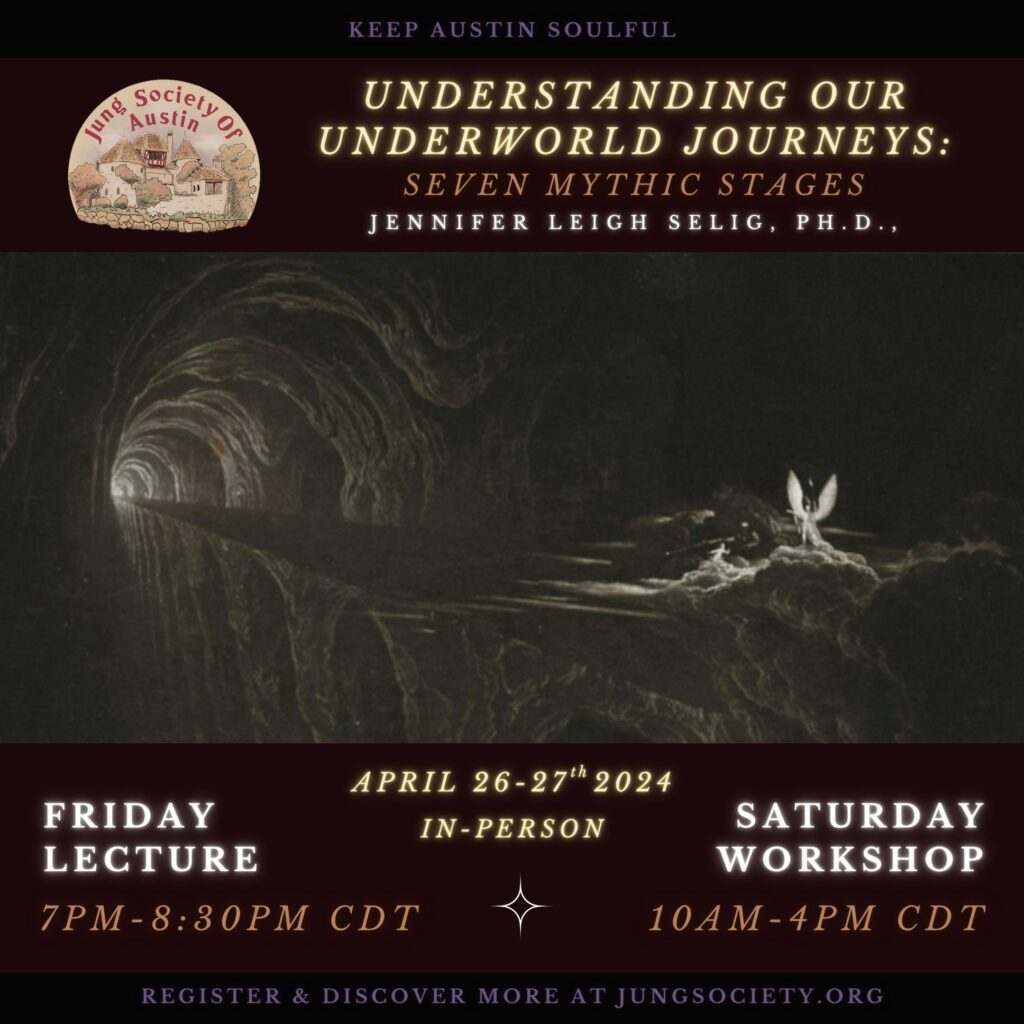
Lecture: In all models of the journey archetype, one of the stages is the descent into the underworld, an initiation into the dark night of the soul. It’s one of the inevitable stages of life, a stage we may enter many times over the course of a well-lived life. Death, depression, grief, loss, illness, betrayal, all manners of blows to the ego—in a long-lived life, we’ll all go there (and many of us were born there, or experienced the underworld early in life). After studying the underworld journey in cross-cultural mythology, I’ve come up with what I call “seven mythic stages†in the underworld, seven “stages of the cross,†if you will. This Friday, I’ll introduce each stage with a myth, and then show how it manifests in our contemporary journeys.
Workshop: Participants will be asked to choose one of their underworld journeys to work with. We’ll go through each of the seven stages again, and participants will write about their parallel experiences inside of each stage. By writing, sharing, and examining our own peak experiences, we’ll learn how to recognize and harness their archetypal power, paving the way for more such moments in our lives, bringing in the bright light we desperately need to balance the dark times we’re living in.
Friday’s presentation and Saturday’s workshop will provide a model that therapists and coaches can use with their clients, clergy and lay ministers can use with their congregants, and friends and family can use with their beloveds in order to understand and support their underworld journey. It’s useful for creatives too—for example, fiction and film writers can use it to imagine rich underworld journeys, songwriters can use it to create songs of the stages, and memoir writers can use it to name and frame their own time in the underworld. All of us can use it to more deeply understand, appreciate, and perhaps even elevate our time in the underworld.
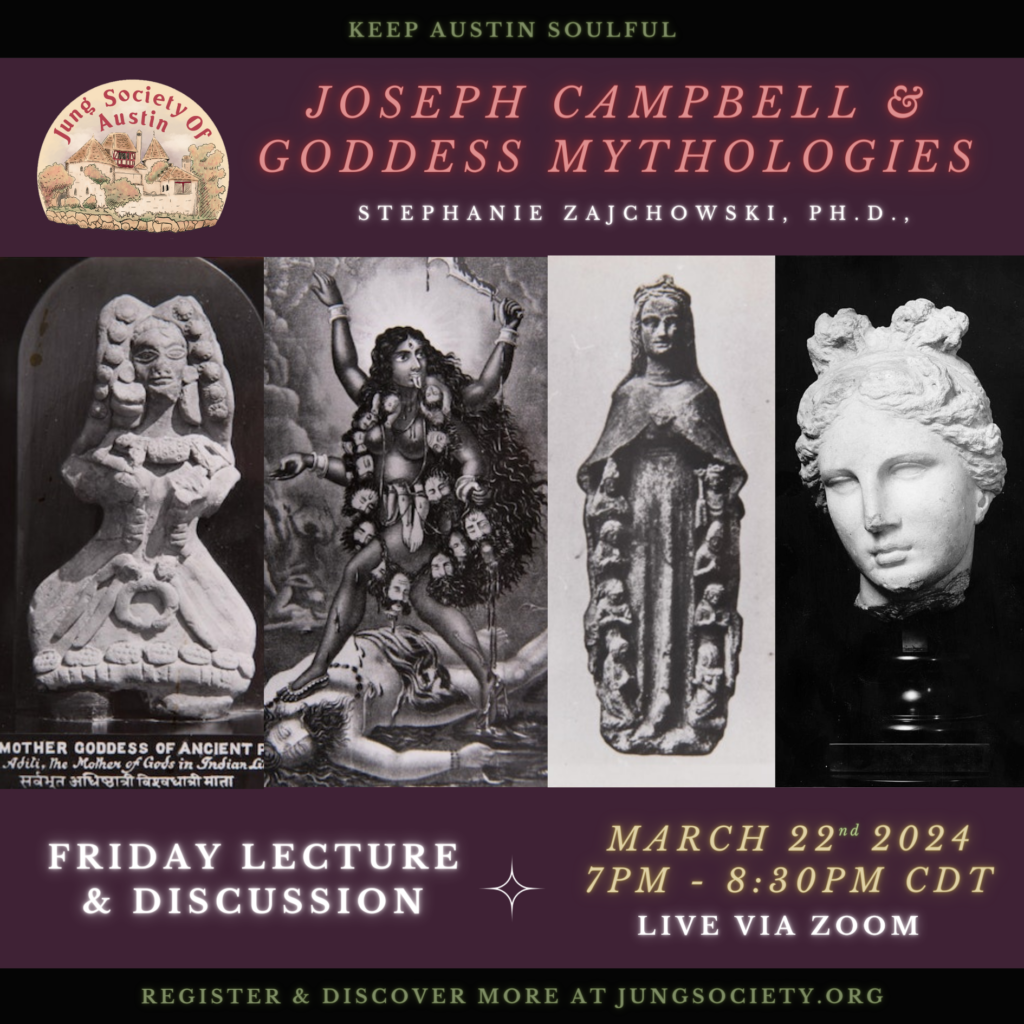
In 2023, the Joseph Campbell Foundation published a study guide to accompany Campbell’s Goddesses:Mysteries of the Feminine Divine. Join Stephanie Zajchowski, PhD, one of the study guide authors, to see how the Goddesses: Skeleton Key Study Guide can provide a pathway for your own explorations into Campbell’s research on goddess figures from various mythologies and cultures.
Dionysus and the Titanic World:
Ecology of Soul in the Digital Age
Kayden McInnis, Ph.D.
Lecture: Friday, February 23rd, at 7:00 pm – 9:00 pm CDT
This event offers Continuing Education Units (CEUs)
This event will be hosted virtually via Zoom
In the world of Jungian-archetypal psychology, exploration of the Dionysian archetypal pattern has gathered force over time. Indeed, this route of inquiry traces back to Jung himself, who used the mythic patterning of Dionysus to shed light on the psychic fragmentation within Western consciousness.
McInnis’ work builds on this discourse, unpacking the Western paradigm of psychological separation from nature. She further traces how this orientation leads to outer exploitation of the nonhuman world and a correlative inner psychic wasteland. In contrast, the god of intoxication and polarities, Dionysus, evokes a sense of the nonhuman world, embodied ways of knowing, and the wild feminine.
Ultimately the Dionysian archetype offers a blueprint for repairing our relationship to nature, especially in the communal context, by undoing titanic cultural impulses. What evolves from Dionysian consciousness is an ecological love, based on reciprocity, which challenges the paradigm of dominating nature.
This lecture harnesses Dionysian and Titanism mythologies to illustrate the ecological disruption central to Western society, as well as its related psychological conditions. Building on this foundation, McInnis illuminates possibilities for transforming our relationship to the climate emergency. JSA invites you to deepen your soul-work through exploring this grander archetypal and ecological perspective.
Who am I Really?
The ‘As-If’ Personality and Imposter Syndrome
Susan E. Schwartz, Ph.D.
Lecture: Friday, January 26th, at 7:00 pm – 9:00 pm CDT
This event offers Continuing Education Units (CEUs)
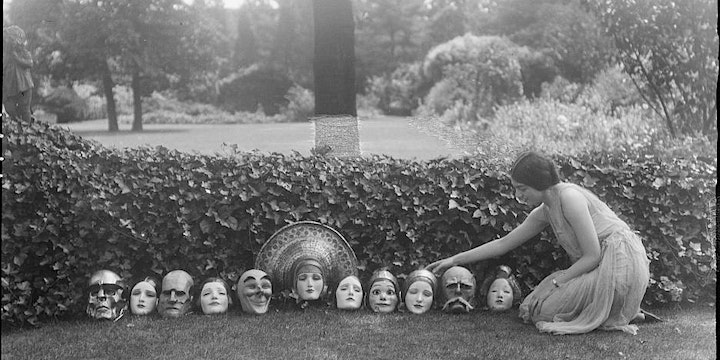
This lecture explores the fragility of self in the ‘As-If’ Personality, the popularly termed “imposter syndrome”, and how the illusions about oneself, and others, shapes identity. The ‘as-if’ person is both the mirror and the mask, presenting a self in artifice. Known for a slickly contrived persona/ego image, behind it the ‘as-if’ person withdraws into fantasy and illusionary worlds. The inner world feels one of alienation and self-isolation. The loneliness, although hidden behind veils and facade, hurts.
These issues affect intimacy with oneself and others due to the inability to be present. Areas of concern for exploring this phenomena include a sense of not belonging, sexual addiction, aging, the cultural influence of social media, the role of the father and mother, body image and split selves. Each of these areas are influenced by the culture of social media where reality and illusion are often blurred.
Complex aspects are explored through composite clinical examples, dreams and a fairytale as we seek to ground this elusive personality type. The purpose of exploring the ‘as-if’ and imposter personality is to nurture awareness to find what can be replenishing and regenerative to the person and culture.
Objectives for this Lecture:
- Identifying aspects of the ‘as-if’ personality according to the schema of Jungian analytical psychology
- Gaining awareness of Jungian therapeutic/analytical work with this personality type
- Exploring analytical defenses like psychic retreat, false self, and ‘as-if’ for expanding the personality
The Depth Toll of Shared Flesh:
Jung, Art, and the Self-Care of the Actor
by Sara Lovett, RSME, REAT
Lecture: Friday, December 8th, at 7:00 pm – 9:00 pm
This event offers Continuing Education Units (CEUs)
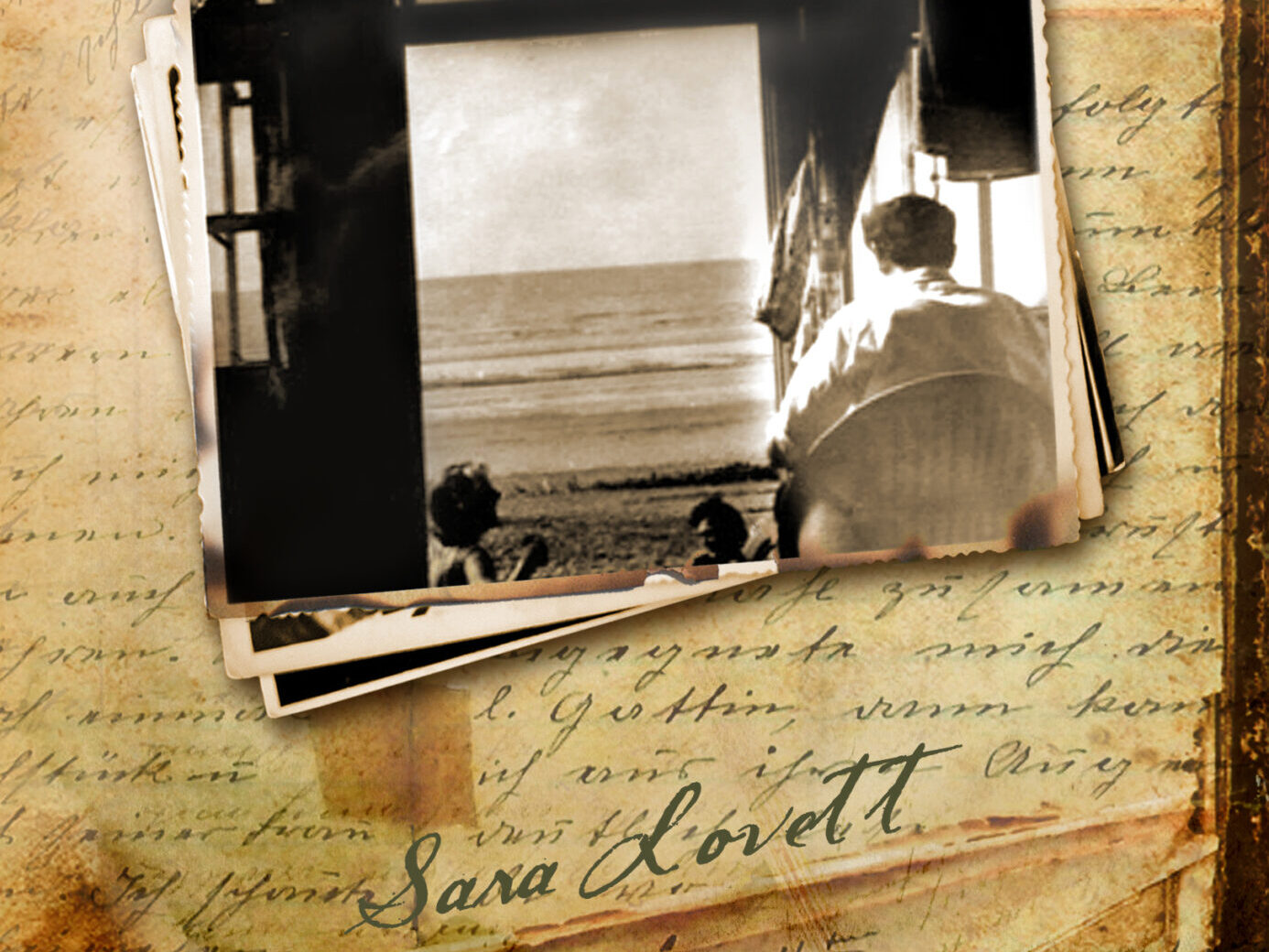
With each character played, actors are asked to live out another’s story, often embodying extreme emotion, through the vehicle of their own flesh. As a population, actors are highly susceptible to depression and suicide clearly indicating the actor’s health at risk.
Sara Lovett’s doctoral research explored actors’ self-care when playing a highly emotional character, and its impact on their body/mind. This qualitative, art-based inquiry asked what impact the art-based embodiment practice of Inscaping plays in actor self-care pre-performance, during, and post-performance.
Inscaping is an embodied self-inquiry practice exploring the relationship between the body and stories/memories/ traumas. This practice involves a life-size outline of the body, drawn on paper, in which life experiences are explored through movement and then written and drawn on the body.
Inscaping was built on the work of Marion Woodman’s body-mapping and Carl Jung’s exploration of his unconscious, which was clearly chronicled in The Red Book.
The results of Sara’s research found the embodied practice of inscaping has a profound impact on how the actor navigates the boundary between themselves and their character and the impact of that on the actor’s wellbeing.
“The term persona is really a very appropriate expression for [the public image of one’s personality], for originally, it meant the mask once worn by actors to indicate the role they played.†Carl Jung, CW 7, Para 245
Sara hopes each lecture attendee will develop an understanding of the somatic toll that shared flesh and a shared unconscious have on the actor as they embody a highly emotional narrative within a character they portray.
Embodied expressive arts accompanying Jungian Psychology is a doorway opening, and Sara invites attendees to suspend disbelief and cross that threshold with her.
Pilgrimage from Haunting to Healing
A Personal Narrative
by Dennis Patrick Slattery, Ph.D.
Lecture: Friday, November 3rd, at 7:00 pm – 9:00 pm
Workshop: Saturday, November 4th, at 10:00 am – 4 pm

Lecture: James Hollis’ excellent study, Hauntings: Dispelling the Ghosts Who Run Our Lives has been Slattery’s foundation for exploring this topic. Uncovering where those situations, people, or conditions haunt us is a necessary part of our individuation pilgrimage. Hauntings are also mythic for they carry our beliefs, values, assumptions and feelings. Hauntings can awaken us to the places that have been unattended, discarded or ignored in our lives. This lecture will track hauntings that have been with Slattery for decades. Time will be alotted for participants’ responses and observations.
Workshop: In writing meditations of 15-20 minutes, we will engage a series of prompts that will orient participants to periods of their lives where hauntings have been present in shaping their lives, invoking past challenges that have stifled one’s destiny and even served to inspire one to an awareness of the need to heal. We will also devise and practice different ways of confronting and befriending what has haunted us and opened us to new formats of living our myth.
Labyrinth Walk:
The Self Archetype
discussion and activity hosted by The Jung Society of Austin,
7pm-8pm, Trinity Methodist Church

The Jung Society of Austin invites you to attend an indoor Labyrinth Walk on Friday, July 14th, from 7pm to 8pm, at Trinity Methodist Church, 4001 Speedway, Austin, 78751.
“I began to understand that the goal of psychic development is the self. There is no linear evolution; there is only a circumambulation of the self.” -C.G. Jung in Memories, Dreams, and Reflections
We will meet in the air-conditioned Community Room at Trinity Methodist Church to begin with a brief history and discussion of a variety of labyrinth experiences. Together we will delve into the ancient archetype of the Self and undergo a descent into the Unconscious! Exploration of the labyrinth is similar to that of a waking dream, brimming with insights to be gleaned.
The Labyrinth Walk is a JSA community event; all are welcome to attend. Sign-up is required via Eventbrite (below).
Psyche & Cinema:
Stranger Things, Season 4
a discussion hosted by The Jung Society of Austin
Friday, June 23rd, at 7:00 pm
This interactive, virtual discussion with the JSA community will engage season four of Stranger Things through a Jungian lens. A variety of themes will be briefly covered by JSA’s discussion leaders, Stephanie Zajchowski, Sandi Wilcox, Tristan Nieto, and Sarah Garcia, before opening up to greater exploration and discourse with attendees.
Stephanie will explore Max Mayfield and Eleven’s underworld journeys by conceptualizing the Upside-Down as analogous to the unconscious. Tristan will speak on satanic panic: the role of projection featuring an archetypal tracing of Eddie Munson and things misunderstood. Sandi will illuminate experiences of individuation in midlife and beyond via Joyce Byer and Jim Hopper. Attendees are encouraged to bring personal insights, ponderings, and questions to facilitate a rich discussion and aid in bringing a depth perspective to a widely loved series.
Psyche & Cinema is a free, community event.
